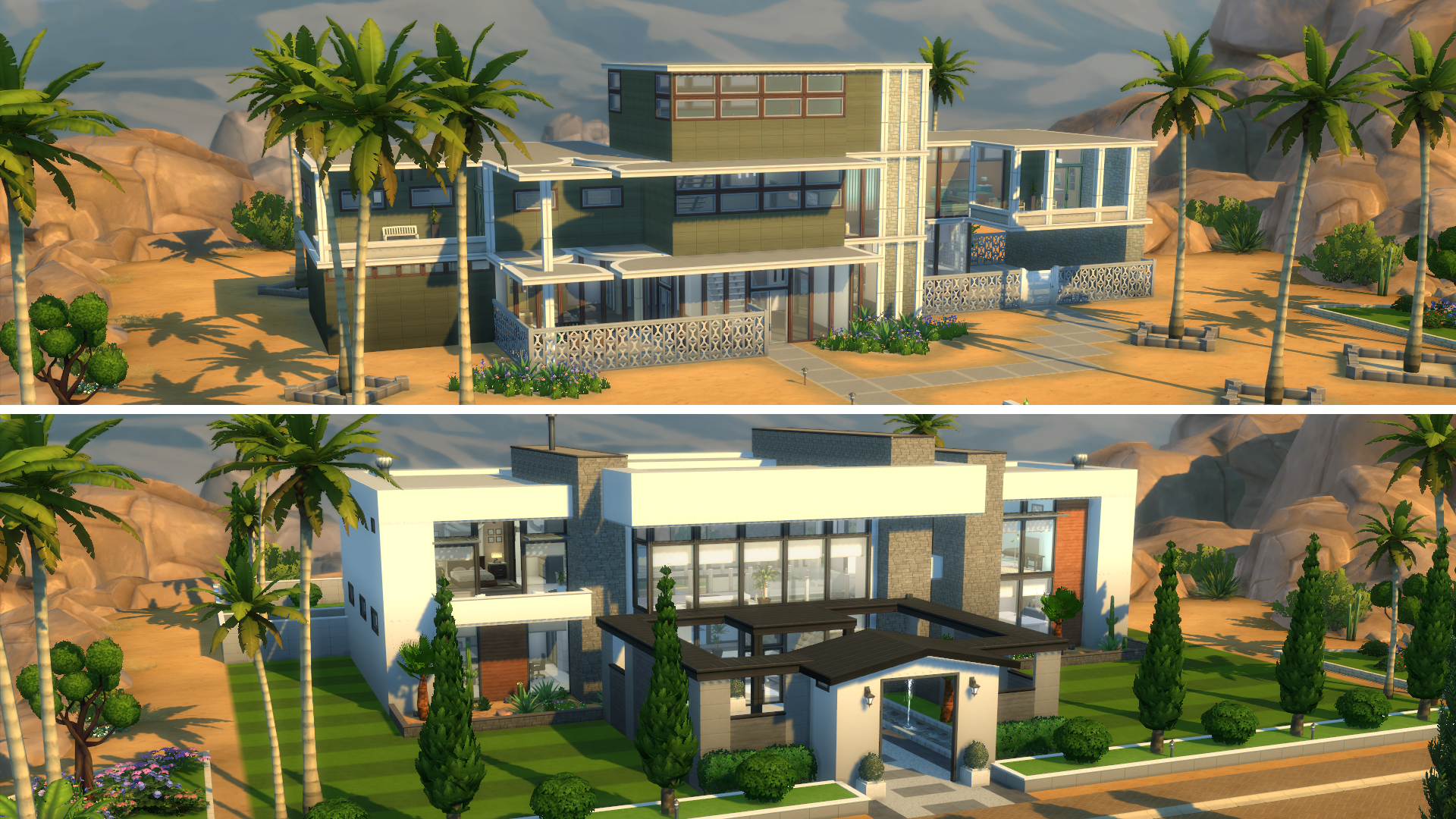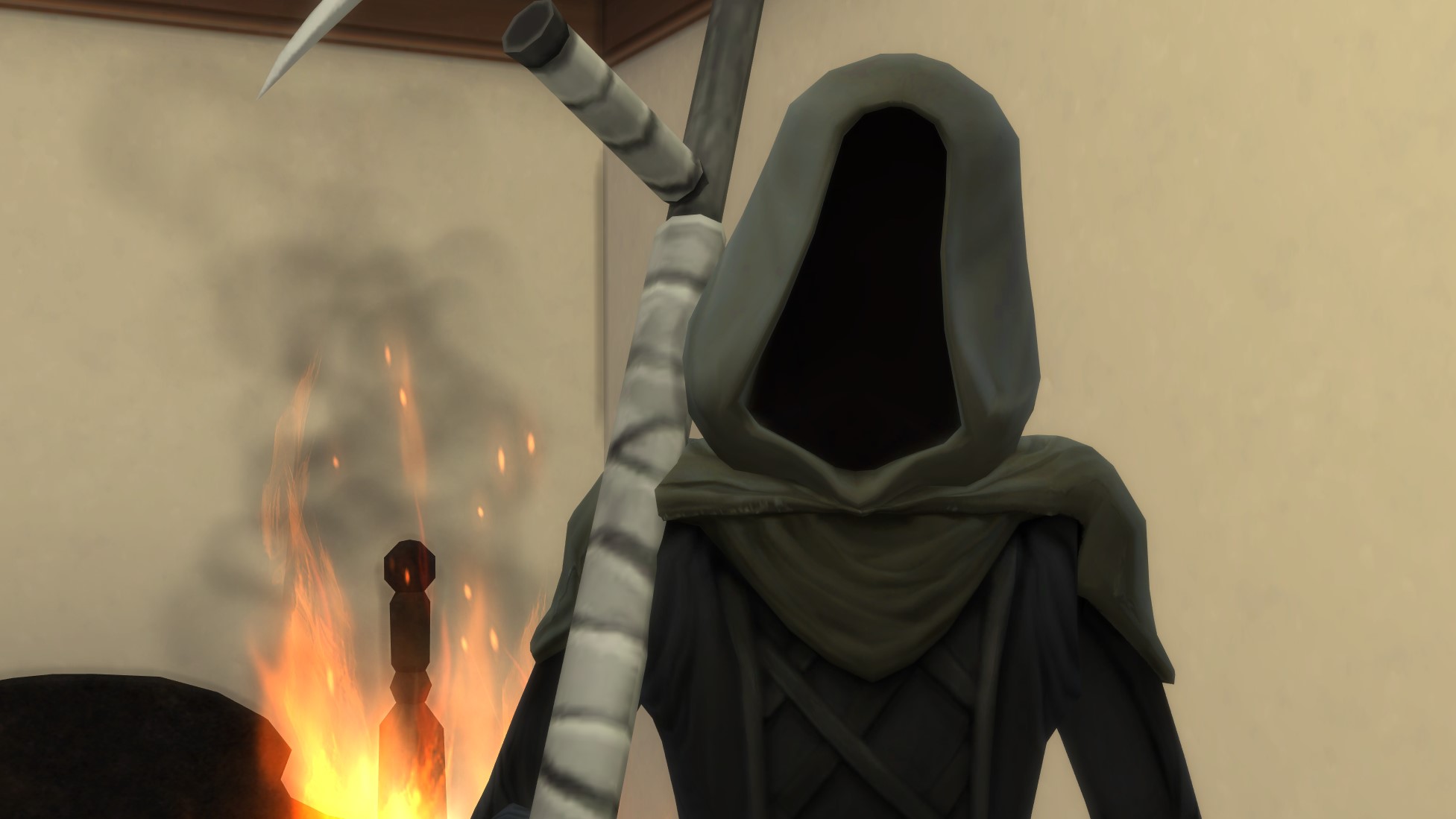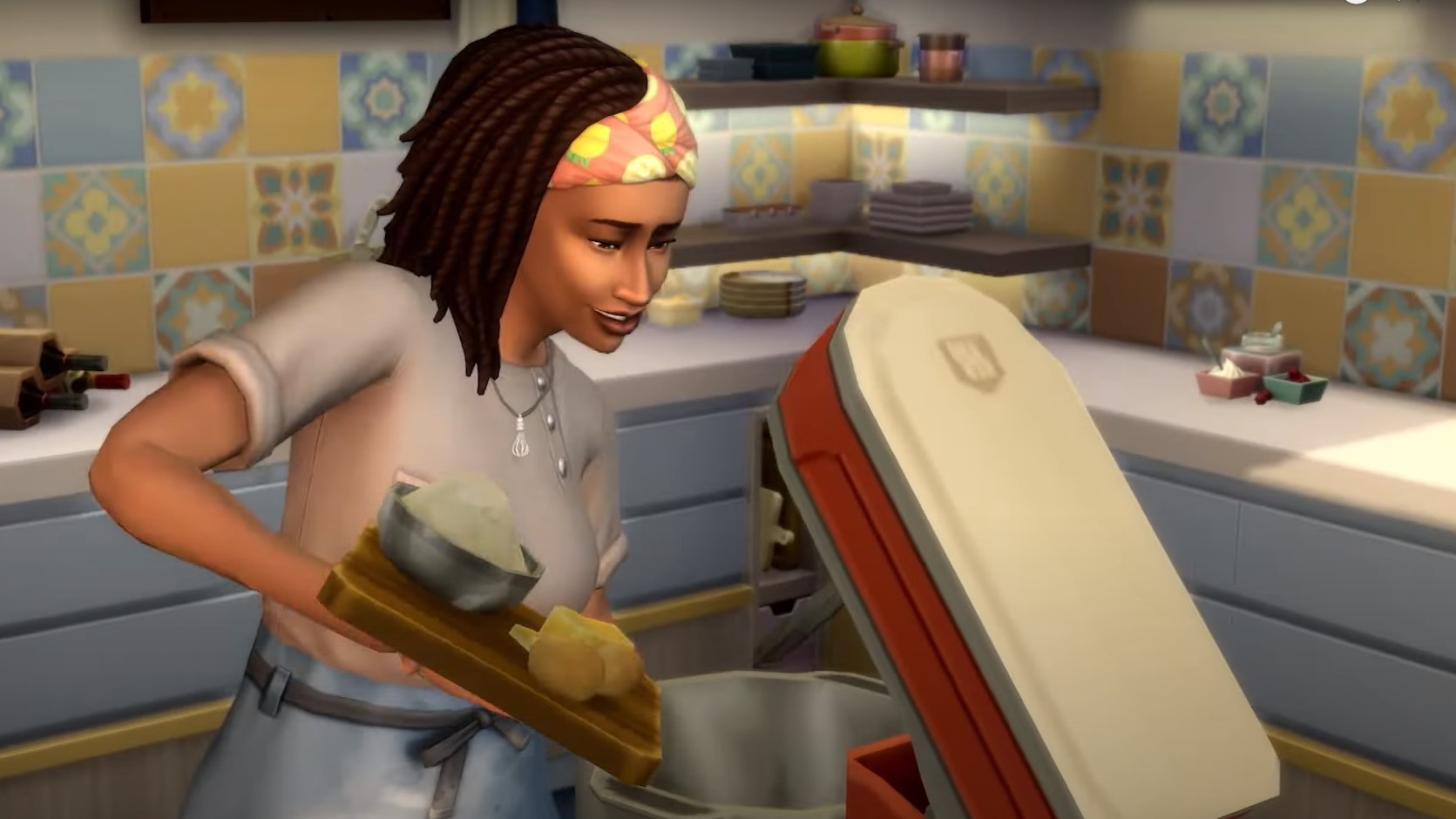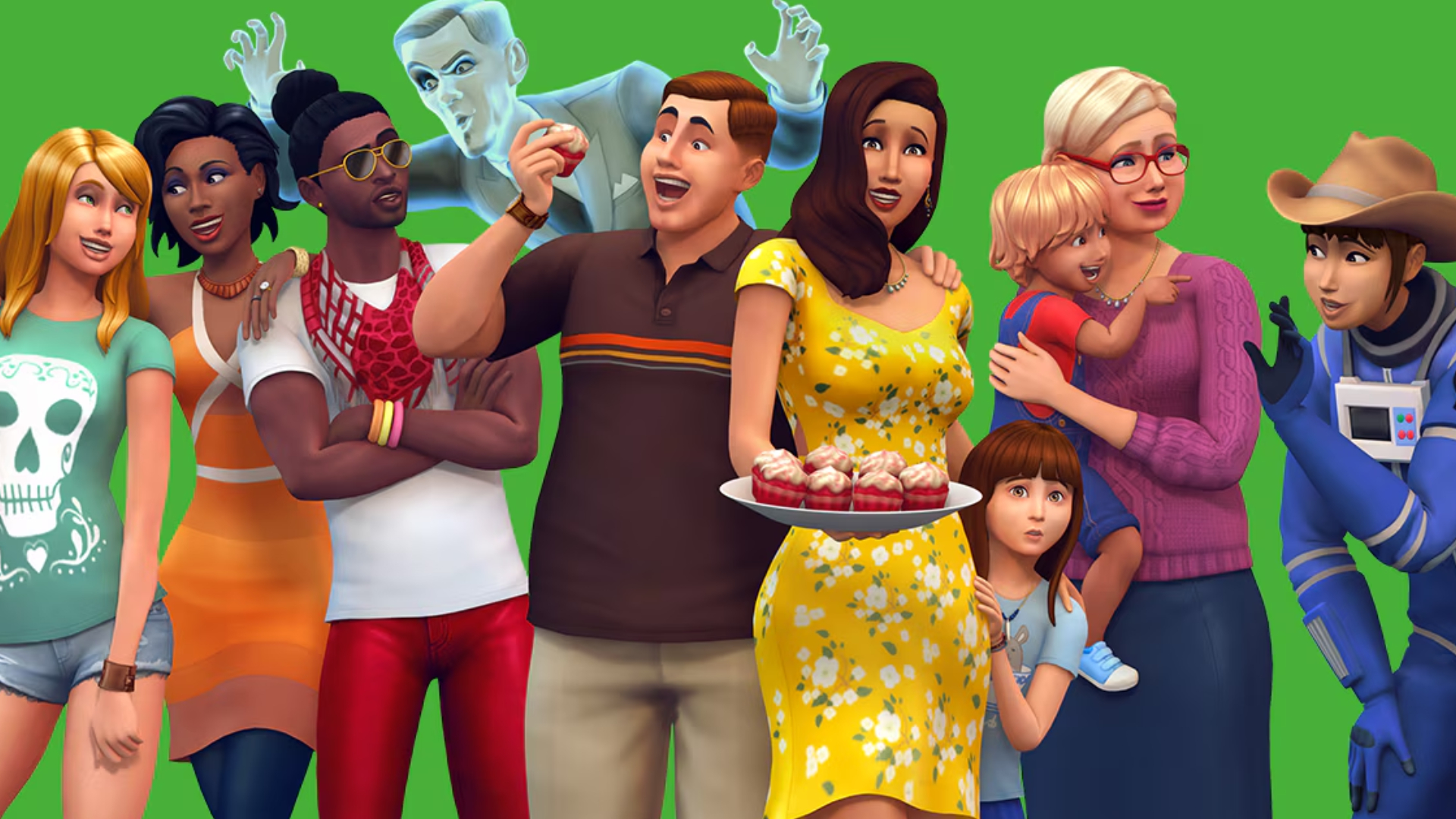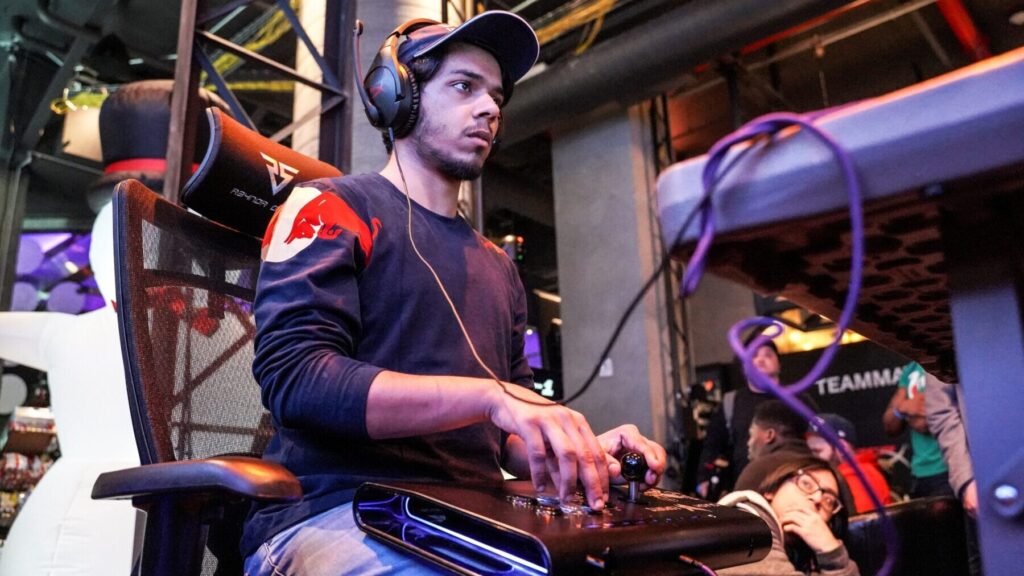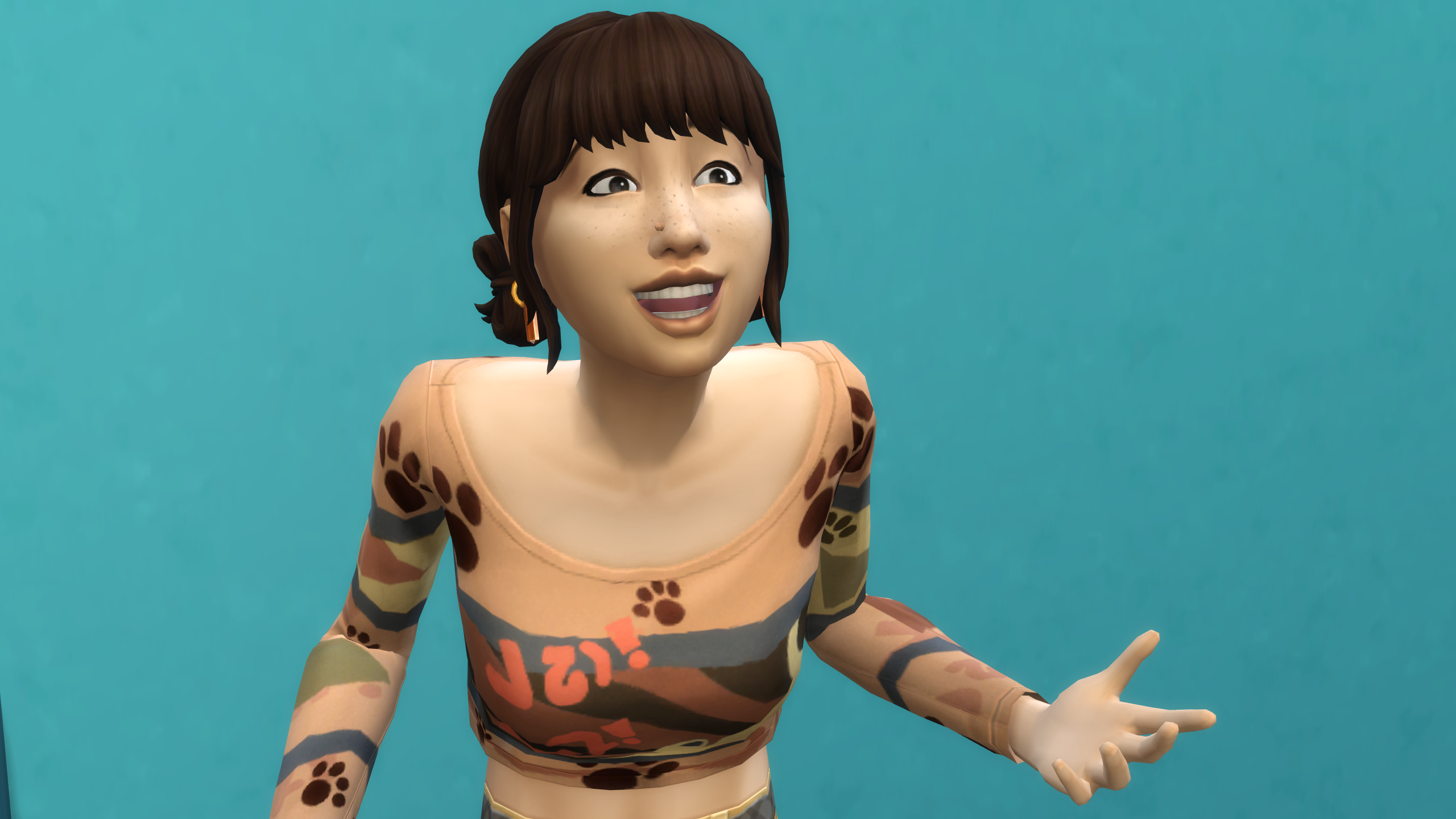
The Sims turns a quarter-century in February.
It’s equal parts impressive and terrifying to think that in just two weeks, The Sims series will be celebrating its 25th birthday. The original Sims game graced our computers in all its isometric glory on February 4 in 2000, giving us full reign over the lives of folk in a virtual dollhouse. Four core games, dozens of expansion packs add-ons, and countless spin-offs later, and The Sims is, by and large, one of the most influential games to ever hit PC.
PC Gamer recently got to sit down and chat with Lyndsay Pearson, vice president of franchise creative for The Sims, and whose history with the series goes all the way back to The Sims: Vacation in 2002. Having just hosted the Behind the Sims presentation—dropping news of a sizeable base game update for The Sims 4, including a townie home refresh, and the re-release of two MySims games on PC—Pearson spoke a little on the past of the series, as well as what’s happening right now and what’s to come.
Giving spin-offs a new coat of paint, and the old ones left on the backburner
With MySims being the first spin-off to be getting some attention in a hot sec—and also seeing MySims Kingdom released on PC for the first time—I couldn’t help but poke Pearson to see if that would open the door for more re-releases down the line. After all, games like The Urbz, The Sims Bustin’ Out, and The Sims 2 Castaway are huge wells of nostalgia, and I would absolutely kill to strut around a city while The Black Eyed Peas blast their songs in Simlish once more.
I think it gives us an opportunity that maybe we didn’t think was there before, which is really exciting
“I think there is a chance now to say ‘Oh, maybe there is new life in these other titles, and that spin-offs have a place,” Pearson tells me. “So one of the things that I get to think about is like, where should The Sims go next, and how do we create all these different experiences and touch points for different audiences? And I’ve had a lot of conversations lately about, like, what could this mean for other titles in our collection?”
As Pearson points out, her 23-year career on the series has never actually involved the spin-offs. “I was always on our core—Sims 1, Sims 2, Sims 3, Sims 4—but I very much wanted to be part of those teams as well. So maybe this is like, my chance to be like ‘Great, now I get to do it again in some other way.’ So I think it gives us an opportunity that maybe we didn’t think was there before, which is really exciting.”
Bringing townie homes to their full potential
Another big Behind the Sims announcement was the revamp of some iconic base game townie homes: the Pancakes, Goths, Calientes, and the Landgraabs being some of the lucky families to receive an architectural upgrade. It’s been over a decade since The Sims 4 released, and in that time a lot has changed. I mean hell, we didn’t even have pools in the original 2014 launch.
But now there are more tools, and a lot more player investment in the lives of these pre-created people. “The Pancakes, for example, were certainly not a family we thought would gain traction the way that they did,” Pearson tells me. “And I love that it has, because that’s one of the magic things that happens in The Sims.” Pearson says the advancement in the game’s tools and each family’s story has offered the team a unique chance. “It’s a really fun opportunity to go back and say ‘Okay, what have we learned? What do people love about these characters? What do people love about our catalogue, and how could we show them off in a different way?'”
She continued: “I mean, particularly when you look at the architectural tools, there’s so many more things you can build in a house now that we just didn’t have when the game first came out. So it’s a rare chance to be able to go back to something that you shipped originally and say ‘Oh, I can refresh this and give it a new update.’ And now we know that we don’t have to build them to be the cheapest houses someone might kick them out of and move in to. We can actually build it as part of a story and part of the lore of the world.”
Life sims are damn hard to make, it turns out
The conversation around life sims—and EA’s continued monopoly on the genre—feels like it’s ramped up over the last couple of years. The Sims continues to go largely unchallenged, though that’s not without several attempts by other developers. Ex-Sims head Rod Humble tried with Life by You, a game that found itself unceremoniously scrapped at the finish line following several delays.
Humble had told PC Gamer last year that life sims are “the most complex RPGs ever written,” a sentiment which Pearson echoed when asked what she thinks makes the genre so hard to replicate.
“You really can play it in so many different ways at so many different times, depending on how you kind of feel that day,” Pearson said, explaining the sheer scope The Sims has. “And I think that that breadth is really difficult to capture in a lot of experiences, because maybe it doesn’t always make sense, and it’s just a lot of a lot of things to get to work together.
“And the other complexity about life sims is, how do you make all of those pushes and pulls on the simulation make some amount of sense? And there’s this very fine balance between being too smart—and your characters don’t need you at all—and not being smart enough where they don’t do anything unpredictable. Even The Sims has swung back and forth over the years, right? Like, you go back and play an old Sims game, it is hard to keep your Sims alive.”
Pearson is right. I’ve lost count of how many Sims YouTube videos I’ve watched that largely boil down to creators desperately trying to keep everyone alive in the original game, a surprisingly gargantuan task. “So there’s a balance to find there,” Pearson says.
There’s a very specific flavour of The Sims world, because it is just enough character of our own that I think it’s hard to replicate, because it feels very uniquely Sims to us.
It’s interesting to look at those pushes and pulls even within the series. As Lauren Morton points out, The Sims 3 and The Sims 4 feel fundamentally different in just how you play them. The idea of you driving the story versus the game doing it is the most visible when comparing these two games, and that balance is something Pearson says is “a tension that we’ve tried to walk over the years.”
While finding that fine line has been key for The Sims 4’s ongoing development—something that Pearson admits the team has been increasingly experimenting with over the years, and trying to find a way that satisfies both playstyles—she also appreciates the difference each core game can bring. “I actually like the idea that they can all coexist for that reason, because I think they do scratch different itches. I think they do offer you a different way to engage and push back, but trying to solve it all in one game is, I would say, the ongoing mission.”
How The Sims plans to stay unique in the face of competition
Like I said, other developers have been trying to come and stake their claim in the life sim genre. It hasn’t been wildly successful thus far, sure, but upcoming 2025 games like Inzoi and Paralives are finally looking to turn the tide.
Pearson isn’t worried though, telling me she wants to be challenged by more cooks in the kitchen. After all, the series has its legacy and its unique Simsness by its side. “I think our humour is a very particular flavour,” she says. “I think there’s a lot of puns, there’s a lot of parody, there’s a very specific flavour of The Sims world, because it is just enough character of our own that I think it’s hard to replicate, because it feels very uniquely Sims to us.
“I think the relationship that the players have to their sims, the sims have to each other, is also just really unique in what I’ve been seeing in a lot of these other things. Now, I haven’t played them all, obviously, but I watch them too, and I see what’s coming. And I just think that The Sims offers this affinity to these little people because they are just human enough, but just quirky enough.
Pearson talked about The Sims’ juxtaposition between crafting realistic people and stories with its more outlandish aspects, like a world filled with vampires and werewolves. “It’s a really broad spectrum, and I think what’s still very uniquely Sims-y, is that we’ve created a world where those things feel like they make sense together somehow, which is a very particular flavour. So I think that’ll still stay unique to us,” she says. “It’s still our voice, our vibe.”
How the commitment to transparency is going
The Sims as a franchise feels like it’s firing on all cylinders at the moment. The Sims 4 isn’t going away any time soon, continuing to be peppered with all manner of paid add-ons. There’s also the recently-announced Sims Hub, encompassing everything from its core series to mobile game The Sims Freeplay and the slightly confusing Project Rene.
The team committed to better communication around these projects, something which has had mixed results. Confusion around what some upcoming projects are actually supposed to be, along with leaks, has sometimes muddied the message Pearson and the team are trying to send. “It definitely happens in any of these franchises like The Sims, where you have a lot of things happening, you’re going to end up with crossed wires occasionally,” she said. “I think we are always evolving our communication strategy to try and figure out what is the right way to share the right information at the right time that isn’t confusing or misleading.”
Pearson added: “You can have the best intentions one year that totally go out the window the next year for completely reasonable reasons, but sharing that path and that journey can be even more complicated sometimes, so it’s really trying to find a balance.”
Looking to the future
Despite some small snags in communication, it’s still full steam ahead for the series. When asked if The Sims 4 would be getting some kind of major overhaul a la World of Warcraft or Runescape anytime soon, Pearson doesn’t appear to be super jazzed about such a large-scale undertaking just yet. “We certainly entertain everything,” she tells me. “I mean, we talk about all the different paths forward and what makes sense and what to do with The Sims 4 or any of our games.”
I think that The Sims continues to be this kind of funhouse mirror to the world, and that’s why it keeps growing and evolving and shifting and changing.
Pearson said there are “so many different ways” to go about potentially giving The Sims 4 some sort of technical or graphical overhaul, and pointed towards the current ongoing effort to tidy up a decade of lingering bugs through the game’s regular laundry lists fixes. “I think it’s a question of looking at all those pieces and parts and saying ‘Which pieces really need the biggest overhaul? Can we do them in parallel? Do we need to do that fundamental scaffolding?'”
For now, Pearson says the priority is “a continuing audit of what does the game need right now? What is the game going to need in a year or two years? And what is the best way to get to that thing?”
So it doesn’t seem like anything major is coming our way yet, but honestly I don’t particularly mind. A focus on patching some of the more lingering issues up feels like the best direction to take right now, especially as we could be sticking with The Sims 4 for several more years at this point.
When asked if Pearson had anything else to say, she called working on The Sims series an honour, adding: “I think that The Sims continues to be this kind of funhouse mirror to the world, and that’s why it keeps growing and evolving and shifting and changing, and it’s certainly one of the reasons that I’ve been part of it for so long.
“And I think that people, whether you’re new to The Sims, or you’ve been with us all along or for many of these years, there’s always something new and different and interesting. Join the community, connect with all of those creatives out there, and you’ll learn a bunch of stuff you had no idea was even in the game.”

